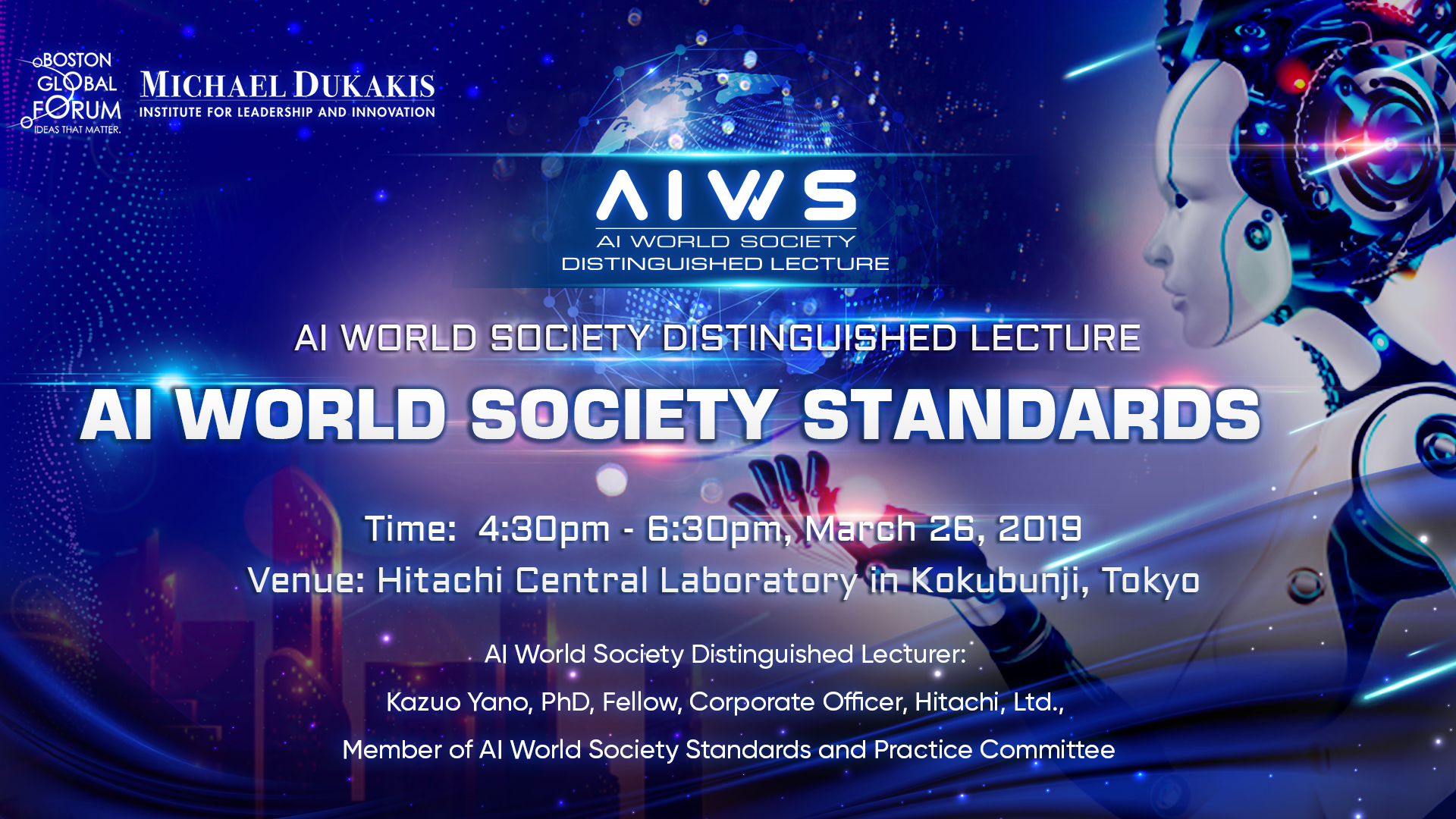
by BGF | Apr 1, 2019 | Highlights
There are many ways our future will change because of AI. We heard it many times, but now the Vatican is talking. BBC recently reported about a workshop on robotics held at the Vatican’s Pontifical Academy of Life. The theme is “Roboethics: Humans, Machines and Health”.

Pope Francis in his opening keynote pressed the need to think about societal costs when develop new technologies, particularly in robotics. The future of robotics needs to be shaped in accordance to what it means to be human because otherwise there would be unpredictable damages to future generations on the planet.
Why is the Vatican concerned? Robots have been made with the idea that maybe human bodies should transition from organic to inorganic forms. We, as humans, “will no longer be recognized as flesh and blood humans, in 10,000 years time”, said Japanese Professor Hiroshi Ishiguro of Osaka University, who is world-famous for making human-like robots.
The Vatican disagreed. Archbishop Vincenzo Paglia, President of the Pontifical Academy for Life, said that “this dream is a terrible dream,” adding that it was “impossible” to divide the body and soul.
Questions about the morality of AI and robotics have been raised by many, for example, in a report last year by the European Group on Ethics in Science and New Technologies. The AI World Society (AIWS) of the Michael Dukakis Institute for Leadership and Innovation has also published a report on AI Ethics suggesting a framework for promoting ethical norms and practices in the development and use of AI.
The Vatican recently partnered with Microsoft to offer an international prize on ethics and AI. The Pontifical Academy of Life already set the agenda for next year’s meeting to focus on AI. The attention of the Vatican on the issue is noteworthy and the upcoming actions guided by Pope Francis could be a factor in the future of AI, which in turn, will shape the future of our lives.
See the full BBC article here.

by BGF | Apr 1, 2019 | News
Algorithms are purposed to create computing tools to assist us efficiently, but, today, they are increasingly replacing humans in making critical decisions in many areas of life. Hence arise the questions: are they honest, do they have politics, or does it all depend on how they are used? Dr. Mark MacCarthy, a Senior Fellow of Public Policy at Georgetown University, recently published an article expressing his viewpoint on the issue of Ethical Character of Algorithms.

“Fairness in algorithms is a nuanced issue”, he wrote. For example, the COMPAS algorithm, which computes a score predicting whether someone will reoffend if released from prison, is regarded differently by different groups. One side argues that COMPAS unfairly results in African-Americans being incorrectly labeled as twice higher risk than whites. The other side defends the score because “its accuracy rate—that is, the rate at which their predictions of recidivism are correct—is the same for both African-Americans and whites at about 60 percent”. Obviously, there are different stands on this controversial political issue in using the algorithm. “The algorithm inevitably has an ethical character”, concluded Dr. MacCarthy.
Another issue raised is the use (or abuse) of prediction value in algorithms. When criminals are being sentenced, traditionally it is understood as a punishment. With the help of algorithms, like the COMPAS algorithm above mentioned, the decision becomes more about whether it is safe to release them. In other words, because of algorithms, we have changed the character of decision making. The article by Dr. MacCarthy also discussed the effect of personalization on the future of news. As more and more young people get their news from social media, news curating algorithms may have intrinsic political effects, hence profound consequences for our democracy.
There is an ethical character in algorithms and it is important that we recognize it. This very complex issue calls for actions from the government and policy makers. The AI World Society (AIWS) has published the AIWS Ethics and Practices Index which measures the extent to which a government’s AI activities respects human values and contributes to the constructive use of AI.

by BGF | Apr 1, 2019 | News
A new study just published this week on PLOS (Public Library of Science) ONE has come out to suggest that we can develop machine learning systems that are better than human experts in predicting the risk of early death.

The team of health care data scientists and doctors at the University of Nottingham (UK) has developed such a system, which is applied to a middle-aged population, and found the prediction accuracy very promising. The impact of this development is significant because it could greatly improve preventative healthcare in the future.
“AI will play a vital part in the development of future tools capable of delivering personalised medicine, tailoring risk management to individual patients, ” predicted the researchers at Nottingham.
There is room for improvement though. The authors of the study would like to explore other large databases and populations, as well as other common machine learning algorithms.
The AI World Society (AIWS) highly values the contribution of the Nottingham team. Though it is difficult to anticipate how AI will change humanity, it’s believed that we have great scientists and scholars who are continuously working and preparing us for whatever is coming.

by BGF | Apr 1, 2019 | News
Scientists at Stanford University, the Massachusetts Institute of Technology and the Toyota Research Institute have found how to accurately predict the useful lifespan of lithium-ion batteries, used in devices from mobile phones to electric cars.

Combining comprehensive experimental data and artificial intelligence revealed the key for accurately predicting the useful life of lithium-ion batteries before their capacities start to wane. After the researchers trained their machine learning model with a few hundred million data points of batteries charging and discharging, the algorithm predicted how many more cycles each battery would last, based on voltage declines and a few other factors among the early cycles.
The new method has many potential applications, for example, it can shorten the time for validating new types of batteries, which is especially important given rapid advances in materials. With the sorting technique, electric vehicle batteries determined to have short lifespans – too short for cars – could be used instead to power street lights or back up data centers. Recyclers could find cells from used EV battery packs with enough capacity left for a second life.
This breakthrough AI application could optimize battery manufacturing by shortening the manufacturing time and production cost. This important AI application is also promoted and supported by AI World Society (AIWS) to develop an advanced AI technology for optimizing production and improving the quality for a better human society.

by BGF | Apr 1, 2019 | News
NVIDIA’s GPU Technology Conference (GTC) is a global conference series providing training, insights, and direct access to experts on the hottest topics in Computing and Artificial Intelligence (AI) today.

GTC has evolved into the industry’s largest AI show, partially because of the role GPUs (Graphic Processing Units). The parallel-processing capabilities of the GPU reduced the load time to 4 minutes, and queries can be run in real time, making the system interactive. This is significant, because data scientists are very expensive resources for companies and should be kept busy. The right infrastructure and software can maximize the productivity of data scientists.
Also at GTC, Amazon Web Services announced a partnership with NVIDIA in which businesses can leverage the ubiquity and cost benefits of the cloud to deploy AI to IoT and edge devices. The joint product lets customers develop, create, train and optimize AI models in the AWS cloud and then deploy them to Jetson powered devices such as smart cameras, manufacturing equipment using AWS IoT Greengrass.
Following to this trend, AI World Society (AIWS) also realizes the importance of AI infrastructure including GPU highly efficient processing, as well as its foundation to scale AI, machine learning and data sciences for an AI Ethics to serve the interests of humanity and world society.

by BGF | Apr 1, 2019 | News
In 2019, the first cars qualified as ADAS (Adaptive Driver Assistance System) level 3 will hit the road, and Artificial Intelligence (AI) will enter ADAS level 2 cars, replacing conventional computer-vision algorithms. For infotainment, AI is already present in high-end BMW, Volvo, and Mercedes models as an option involving relatively low volumes. Moreover, embedded in-car computing remains quite inexpensive because the computing is done in the Cloud. However, as for the smart-home market, there is a willingness to bring AI to the Edge, implying the need to create powerful, more expensive computing.
AI enters the fray with speech and gesture recognition technologies. Smart-home giants Google and Amazon are now in cars with their well-known speech recognition solutions “Ok, Google!” and “Alexa”, respectively. And Google goes even further by integrating its Android operating system. In terms of gesture recognition, Sony Softkinetic plays a central role with OEMs in developing these solutions.
“Artificial intelligence shortens the path to autonomy and brings the home into the car,” comments Yohann Tschudi, PhD., Technology & Market Analyst at Yole. “AI is slowly but surely invading more and more markets, and thus the daily movements of each one.” According to Michael Dukakis Institute for Leadership and Innovation (MDI), AI can be an important tool to serve and strengthen our society and improve human life quality, such as smart homes and autonomous car in a near future.

by BGF | Mar 25, 2019 | AI World Society Distinguished Lecture, Michael Dukakis Institute
ALERT TO MEDIA: Coverage is invited.
Register in advance with:
Dick Pirozzolo [email protected] 1-617-959-4613 or NOBUE MITA Tokyo at: [email protected]
Hitachi Chief Scientist Kazuo Yano is named to deliver

AIWS Distinguished Lecture for 2019 on March 26
Kazuo Yano, Corporate Chief Scientist of Hitachi and a member of AI World Society Standards and Practice Committee will deliver the AI World Society Distinguished Lecture for 2019.
Much of Yano’s watershed work has been focused on quantifying happiness through the deployment of artificial intelligence and big data and applying that knowledge to the corporate environment.
Yano, who is a visiting professor at the University of Tokyo, will speak at 3:30 pm – 5:30 pm, March 26, 2019 at the Hitachi Central Laboratory in Kokubunji, Tokyo, and will focus on establishing AI World Society Standards.
Also speaking will be: Mr.Yuichi Iwata, senior researcher from Nakasone Peace Institute, Mr.Kei Yamamoto, president of D-Ocean and Mr.Yuji Ukai, the president of FFIR.
See agenda below.
Yano is widely regarded for his pioneering work in semiconductors, such as the creation of the first room-temperature single-electron memory in 1993. He also pioneered measurement and analysis of social big data and is the author of, “The Invisible Hand,” one of the top ten business books published in Japan in2014.
The AI World Society Distinguished Lectures
Each year, the Boston Global Forum and the Michael Dukakis Institute organizes – The AI World Society Distinguished Lecture to honor those who have made outstanding contributions in AI that are associated with fostering the Artificial Intelligence World Society (AIWS) 7- Layer Model.
The AIWS Distinguished Lectures focus on ideas and visions of the honorees that brought them to their current position of achievement and highlight, their contribution to shaping the future.
The lecturer will be awarded the Certificate of Honor—the AIWS Distinguished Lecture from the Michael Dukakis Institute for Leadership and Innovation (MDI) and the AIWS Initiative. The annual lectures are retained as part of the historical records at AIWS House, published in an e-book and featured in a special section of the Shaping Futures Magazine.
About MDI – Boston Global Forum
Boston Global Forum (BGF), based in Boston, Massachusetts, was founded to bring together the world’s thought leaders and experts to participate in open public forums to discuss and illuminate the most critical issues impacting the world at large.
BGF’s principal mission is to provide an interactive and collaborative world forum for identifying and developing action-based solutions to our most profound problems. Its method is to host gatherings of thought leaders and experts to identify and explore the most pressing societal concerns and propose creative and practical solutions.
AI World Society Distinguished Lecture
Agenda
4:30 pm: Introduction, Ms. Nobue Mita, Representative of the Boston Global Forum in Japan
Opening Remarks, Mr. Nguyen Anh Tuan, Co-Founder, and CEO of the Boston Global Forum, Director of Michael Dukakis Institute for Leadership and Innovation
4:40 pm: AI World Society Standards, Mr. Kazuo Yano, Corporate Chief Scientist, Hitachi, Member of AI World Society Standards and Practice Committee
Also speaking will be: Mr.Yuichi Iwata, senior researcher from Nakasone Peace Institute, Mr.Kei Yamamoto, president of D-Ocean and Mr.Yuji Ukai, the president of FFIR.
5:40 pm: Discussion
6:25 pm: Present Certificate of AI World Society Distinguished Lecturer to Mr. Kazuo Yano by Mr. Nguyen Anh Tuan
6:30 pm: Closing Remarks

by BGF | Mar 25, 2019 | News
AI could help college debaters become more persuasive, but experts are divided over the promise of computer-assisted coaching, according to Inside Higher Ed, a media company and online publication that provides news, opinion, resources, events and jobs focused on college and university topics.

Last month marked the first time a machine-versus-man debate competition took place. The machine, Project Debater, is an AI-powered technology implementation of IBM that helps people develop persuasive arguments and make well-informed decisions. Project Debater lost to human Champion Debater Harish Natarajan, but the company hopes that the technology can be useful to college debate. It could be a practice opponent, a research aid, or even a judge of the strength of students’ arguments.
However, not every debate expert is on the same page. An argument is that AI may not understand the full process of argumentation, for example, “shaping and altering the arguments based on the particular audience” (humor, eye contact, delivery and subtlety of argument). Another argument is “debate is both an art and a science”. A debate coach likened the AI’s performance in the live debate to that of a novice debater. It was able to compile all the information but “didn’t know how to use it”.
Important points are also raised about equality and honesty. The technology might only be affordable at the wealthiest institutions, hence, an unfair advantage. It is not sure whether the use of AI would be deemed intellectually honest by college debate judges.
The world of college debate is slow to change. AI for college debate? Too early or harmful? See the full article here.
See the full report on the survey here.

by BGF | Mar 25, 2019 | News
According to Stanford News, last week, Stanford University launched the Stanford Institute for Human-Centered Artificial Intelligence (HAI) as an interdisciplinary hub for policymakers, researchers, and students.

HAI will be co-directed by AI pioneer and former Google vice president Fei-Fei Li, and former Stanford Provost John Etchemendy. The Institute’s advisory council includes former Alphabet executive chairman Eric Schmidt, LinkedIn co-founder Reid Hoffman, former Yahoo chief executive Marissa Mayer and co-founder Jerry Yang, and Jeffrey Dean, co-recipient of the 2012 ACM-Infosys Foundation award (now the ACM Prize in Computing).
HAI builds on Stanford’s long-standing expertise in bridging disciplines to tackle complex challenges. Etchemendy said HAI’s “biggest role will be to reach out to the global AI community, including universities, companies, governments, and civil society to help forecast and address issues that arise as this technology is rolled out.”
The AI World Society (AIWS) warmly welcomes the launch of HAI. “One beautiful thing about this world is that it’s made of people of all walks of life and diverse backgrounds,” said Li. “We need all kinds of people to participate and shape our collective future.” At AIWS, we hope to collaborate with HAI one day, so that we could share our ideas and solutions at the policy-making level to bridge disciplines to shape the future.
















